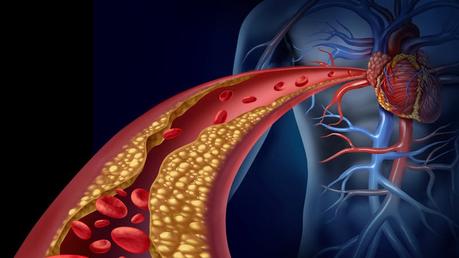
Sarah Bosely, the health editor of The Guardian, recently published an opinion piece demonizing those who question the role of saturated fat and statins in causing or preventing heart disease.
The Guardian: Butter nonsense: the rise of the cholesterol deniersTo be honest, this was a heavily biased and uneducated piece. Rather than present an objective review of the arguments, she uses demeaning language and accusatory tones to make the case that the status quo must be right.
Unfortunately, that attempts to silence a healthy debate and ignores volumes of scientific data to suggest that the topics of cholesterol and statins are more complicated than the status quo would have us believe.
For starters, Ms. Boseley combines two different arguments under one convenient but incorrect umbrella. Whether saturated fats cause heart disease and whether reducing LDL with statins prevents heart disease are two different issues.
Secondly, the pathogenesis of cardiovascular disease is a complex process. It does not do it justice to say it is simply a disease of too much LDL, or to say it is simply a disease of too much sugar, or to say it is all about inflammation. Instead, it is a multifaceted problem that requires a multifaceted solution.
Apparently the media thinks we don't want to hear about complexities and nuances. It thinks we want to hear about good and evil - to pit one side against the other - as if one side has to be unequivocally right or wrong, leaving no room for a middle ground.
To see a properly written and scientifically referenced article on how science does not support the role of saturated fat and heart disease, look at the well written summary by The Nutrition Coalition. Did Ms. Boseley consider any of these scientific papers in her opinion piece? Clearly not.
Plus, recent evidence from Virta Health has shown that a low-carb, high-fat (including saturated fat) diet can reverse diabetes with little to no impact on LDL cholesterol. Again, Ms. Boseley's one-sided article made no reference to the paradigm changing studies showing that the status quo is not always right.
Ms. Boseley also fails to understand the quality and limitations of science. Observational data with weak associations cannot support a causative role. Yet medical guidelines rely heavily on this type of evidence to support their conclusions. Time and again, we have seen this type of data proven to be incorrect; this is likely going to be one of those examples yet again. This type of correction of mainstream views can only happen through an open debate airing varying viewpoints.
But, that introduces complexity and nuance, which we already determined the media does not like to consider (likely because it doesn't get as many clicks or views).
As for statins, they have become the wonder drug of our generation. Yet, the data shows that for those without evidence of heart disease, we have to treat over 200 people for five years to prevent one heart attack, with no reduction in the risk of dying. Plus statins come with potential side effects of muscle aches and weakness, an increased risk of diabetes, and possibly increased risk of dementia in some.
Is this a wonder drug? It all depends on your perspective.
Yet at the same time, it is clear that statins have an effect. For those with heart disease, we need to treat 83 people for five years to save one life, and 39 for five years to prevent one heart attack. (Of note, these are predominately pharma sponsored trials with heavy conflicts of interest.) It may not be a dramatic effect, but it is an effect. Therefore, claiming statins are useless and have no role whatsoever is equally incorrect and short sighted.
They key is finding the right approach for each patient. That means avoiding all-or-nothing claims and understanding individual variation.
The key is continuing a healthy debate to better define the right scenario for drugs and when they should be avoided.
The key is demanding higher quality evidence that stands up to scrutiny, rather than basing decisions on decades of low-quality science and subsequent consensus opinions.
Ms. Boseley fell far short of these goals in her biased opinion piece. I hope we can all do better.
Thanks for reading,
Bret Scher, MD FACC

